What could be coming in the UK Budget - and what it means for Scotland
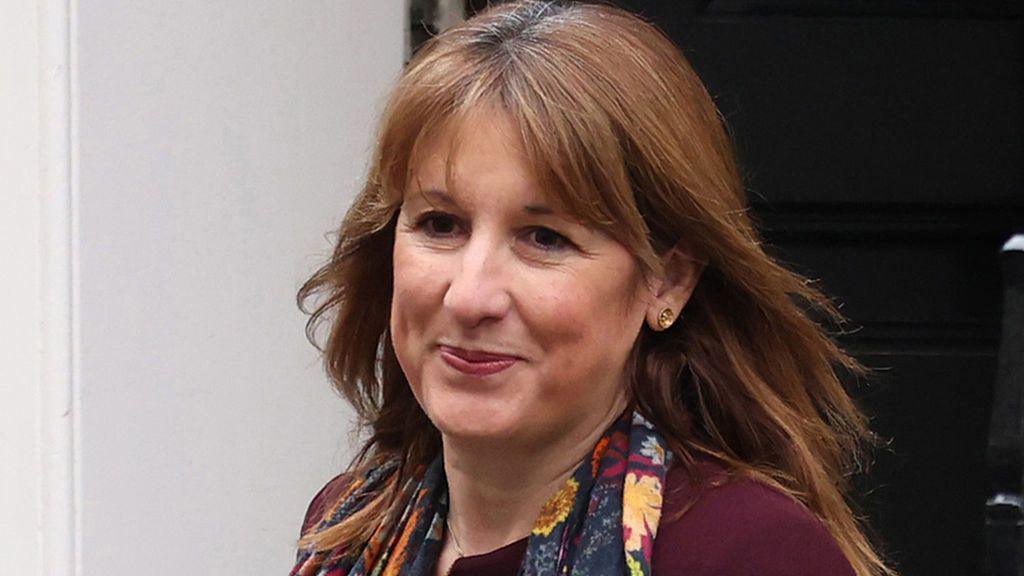
Chancellor Rachel Reeves will deliver the UK government's Budget on Wednesday
- Published
This week's budget is the first of two that will define the financial context for the 2026 Holyrood election campaign.
Many of the decisions on taxation and spending taken by the chancellor Rachel Reeves will apply across the UK.
The Treasury's approach also determines, to a large extent, the resources available to the Scottish government as it prepares its draft budget for 2026/27.
The Scottish finance secretary Shona Robison is expected to publish her plans on Tuesday 13 January.
UK government to announce Grangemouth funding in Budget
- Published18 hours ago
Fear and scepticism as Reeves prepares for her big Budget moment
- Published2 days ago
What can nervous businesses expect from the Budget?
- Published14 hours ago
The immediate task for the chancellor is widely expected to be how to fill a multi-billion pound gap in the public finances because the economy has not performed as well as she had hoped.
Reeves appears to have ruled out big spending cuts, having been forced by disgruntled Labour MPs to substantially reverse previous attempts to reduce benefits.
There are plans to crack down on benefit fraud and overpayments which might save some cash, but nothing like the big numbers required.
The chancellor seems determined to avoid a borrowing spree that could undermine market confidence in her stewardship and increase the cost of servicing the UK's already large debt.
All of which points to the likelihood of significant tax rises.
Having more or less confirmed that Labour's manifesto pledge not to put up income tax would be broken, the UK government went on to brief against itself, making clear this would not happen after all.
At the weekend, the former chief economist at the Bank of England Andy Haldane described this as a "fiscal fandango" that he said was causing economic harm - a charge ministers denied.
Could Scotland's grant be cut?
If the chancellor is not prepared to put up the rates of big revenue raisers like income tax, VAT or personal national insurance contributions, then what?
That suggests a pick and mix of tax increases to make up whatever the shortfall turns out to be.
An obvious starting point would be to freeze the earnings thresholds at which different income tax rates apply.
As earnings rise, freezing thresholds draws more workers into paying tax and into paying income tax at higher rates.
If the UK government chooses to do this it would be for taxpayers in England, Wales and Northern Ireland.
But because of the way the Scottish government's share of UK resources is calculated that would actually lead to a cut in the grant that Scottish ministers receive from the UK Treasury.
That would leave the Scottish finance secretary with a decision to make. Whether to take that hit or (more likely) to recoup that cash by taking comparable action in Scotland.
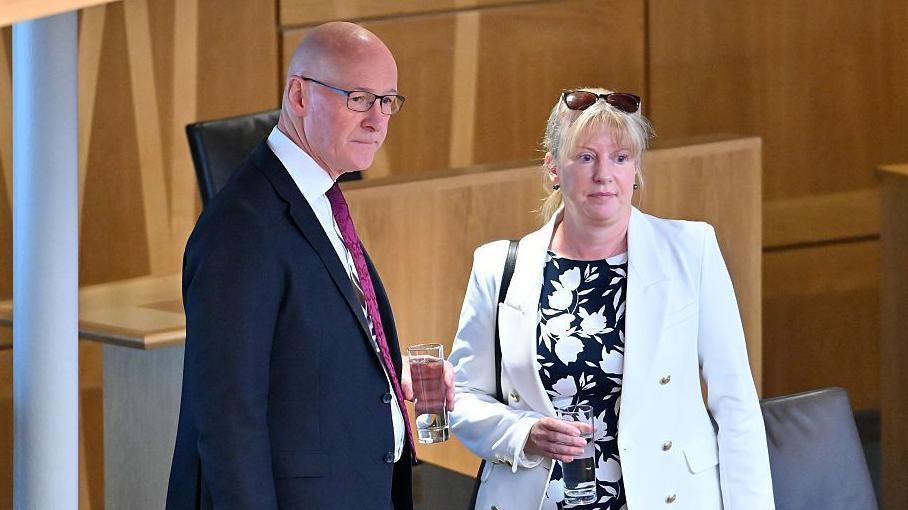
First Minister John Swinney and Finance Secretary Shona Robison could have difficult decisions to make
This is not the only area where UK decisions have a knock-on effect for the devolved government in Edinburgh.
The Scottish government's allocation, or block grant, from the UK Treasury is adjusted relative to what is spent on devolved services like health and education in England.
Scotland's share is worked out based on population and some other factors under what is known as the Barnett formula.
The budget impact on Scotland becomes most complicated when it comes to welfare spending where responsibilities are shared between Westminster and Holyrood.
For example, it is widely thought that despite financial constraints the UK government is preparing to end its policy of limiting access to certain benefits to two children in any family.
The Scottish government is already preparing to use its own powers and resources to effectively end the limit north of the border from April 2026.
If the chancellor does that UK-wide, that would free up an estimated £155m of proposed Scottish government spending that they could divert elsewhere.
The first minister John Swinney has said he would still want to spend that cash on child poverty reduction. Whether that would mean increasing the Scottish Child Payment or something else is not yet clear.
Swinney has said the test for this budget will be whether or not it lowers family bills, including energy bills.
What are Scottish Labour looking for?
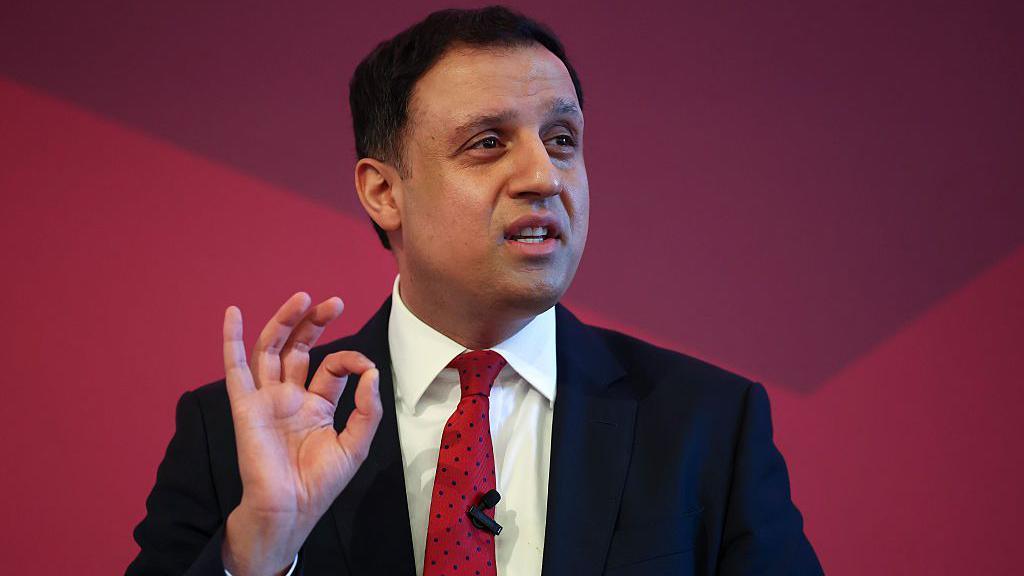
Anas Sarwar has previously said he wants to see a package of measures to reduce energy costs
Interestingly, the Scottish Labour leader Anas Sarwar has specifically called for a package of measures to reduce energy costs, which would be an odd thing to do unless he is confident that will happen.
If it does, that is likely to be action that would apply equally across the UK, as much of the budget will.
If there are changes to the taxes on tobacco or beer, wine and spirits these will affect smokers and drinkers wherever they live.
The same would apply if there was any change to fuel duty or if a new pay-per-mile charge for electric vehicle users was introduced.
On the spending side, the prospect of an above inflation rise in state pensions is for qualifying retirees in all corners of the UK.
Then there are UK-wide measures that have a particularly strong impact in Scotland.
For example, the Conservatives have called for the energy profits levy applied to oil and gas producers to be scrapped. That's a change Reform UK has also campaigned for.
As this industry is highly concentrated in the north east of Scotland, any decision would have particular resonance there, where the decline in fossil fuel extraction is costing jobs.
The levy was brought in by the Tories and maintained by the Labour government. It's due to end in 2030 unless UK ministers decide to make a change.
Having supported its introduction, the SNP now wants to see this tax relaxed or removed. That would not, of course, help Rachel Reeves close the gap in UK finances.
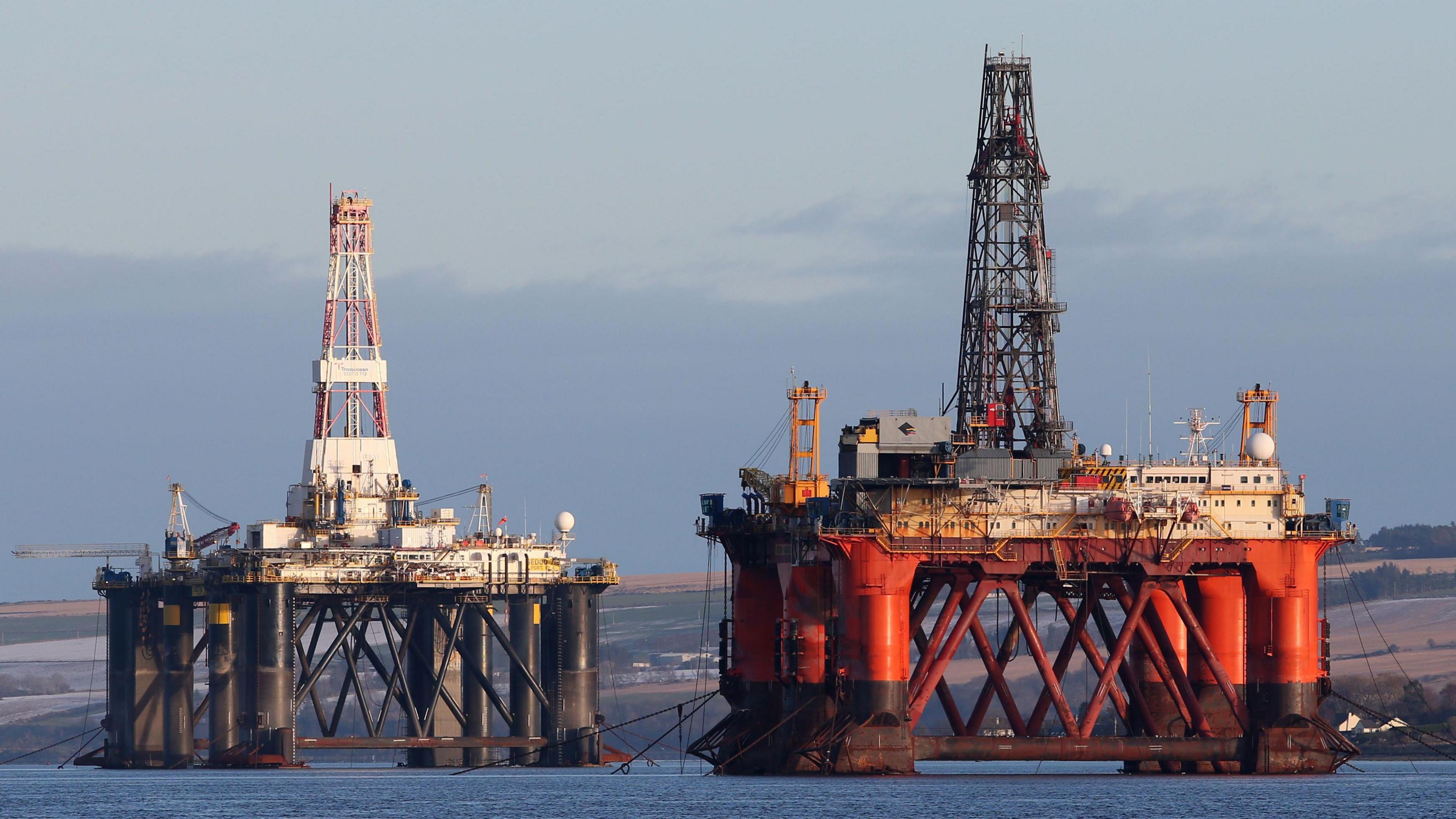
The current levy is a temporary windfall tax on what were seen as excessive energy profits
The Liberal Democrats have floated ideas for a windfall tax on bank profits and taxation on the UK profits of online gambling firms. The Scottish Greens want to see new taxes on wealth and property.
Others have suggested salary sacrifice schemes be made less generous.
When it comes to public spending, the UK's growing defence budget does not include a specific Scottish share.
Having said that, the prime minister specifically chose to launch his defence strategy at a Clyde shipyard which has secured a massive order from Norway.
The UK government is currently exploring a number of Scottish sites to build at least one new munitions factory.
The budget may also include other spending for specific projects in Scotland.
It has been suggested that around £14m of funding will be earmarked for Grangemouth, where the oil refinery is closing.
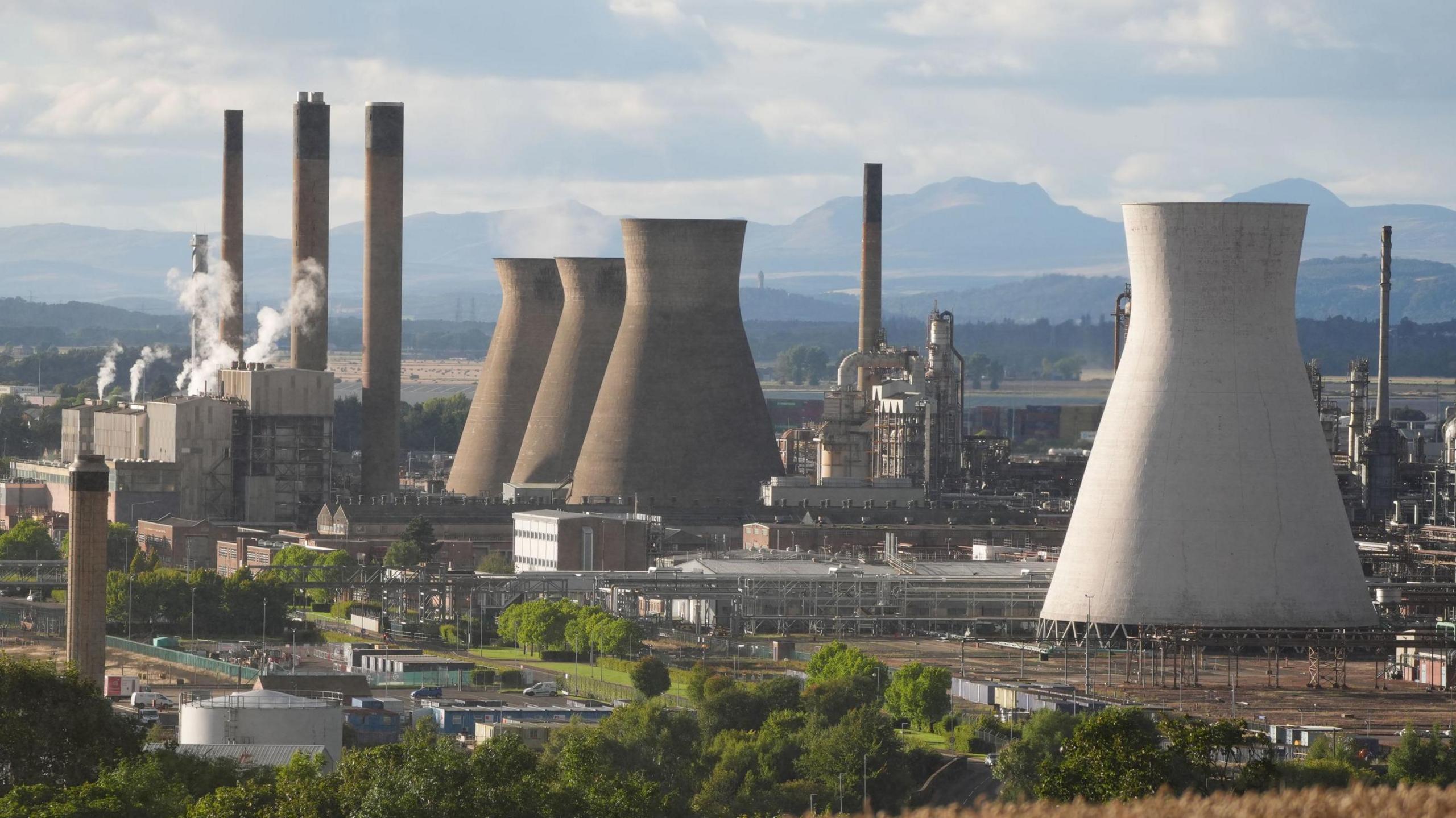
Grangemouth refinery ceased production in April which has led to the loss of about 400 jobs
That's separate from the £200m already promised by the UK government which has not yet been spent.
That pot is only accessible if a private partner can be found to develop new industrial opportunities on the site.
The Scottish government got a big cash boost from last year's UK budget. That new baseline is expected to be maintained but the scope for further expansion is probably limited.
There has never been a time when SNP ministers have been 100% happy with what the UK Treasury has decided.
That is in the nature of devolved politics, particularly in a pre-election period.
That said, Rachel Reeves and Keir Starmer cannot afford any budget blunders.
The prime minister's approval ratings are rock bottom and his own aides have recently raised the potential for a challenge to his leadership.
Swinney's position appears much more secure at this point but if he is to retain power, the SNP's budget choices must be capable of withstanding the scrutiny of the election campaign.